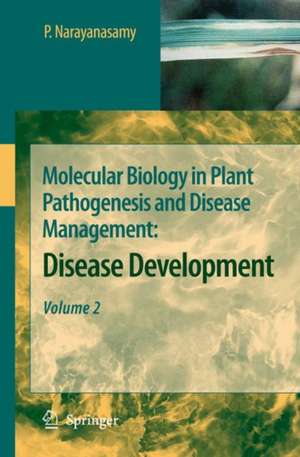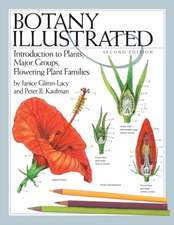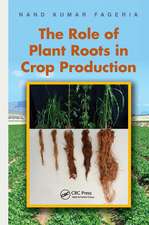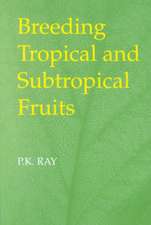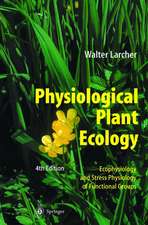Molecular Biology in Plant Pathogenesis and Disease Management:: Disease Development, Volume 2
Autor P. Narayanasamyen Limba Engleză Hardback – 12 iun 2008
| Toate formatele și edițiile | Preț | Express |
|---|---|---|
| Paperback (3) | 943.07 lei 6-8 săpt. | |
| SPRINGER NETHERLANDS – 10 noi 2010 | 943.07 lei 6-8 săpt. | |
| SPRINGER NETHERLANDS – 19 oct 2010 | 943.25 lei 6-8 săpt. | |
| SPRINGER NETHERLANDS – 19 oct 2010 | 1219.01 lei 6-8 săpt. | |
| Hardback (3) | 949.23 lei 6-8 săpt. | |
| SPRINGER NETHERLANDS – 11 iun 2008 | 949.23 lei 6-8 săpt. | |
| SPRINGER NETHERLANDS – 12 iun 2008 | 949.23 lei 6-8 săpt. | |
| SPRINGER NETHERLANDS – 12 iun 2008 | 1225.31 lei 6-8 săpt. |
Preț: 949.23 lei
Preț vechi: 1157.60 lei
-18% Nou
Puncte Express: 1424
Preț estimativ în valută:
181.63€ • 189.27$ • 150.39£
181.63€ • 189.27$ • 150.39£
Carte tipărită la comandă
Livrare economică 03-17 aprilie
Preluare comenzi: 021 569.72.76
Specificații
ISBN-13: 9781402082443
ISBN-10: 1402082444
Pagini: 268
Ilustrații: XVII, 246 p.
Dimensiuni: 155 x 235 x 19 mm
Greutate: 0.55 kg
Ediția:2008
Editura: SPRINGER NETHERLANDS
Colecția Springer
Locul publicării:Dordrecht, Netherlands
ISBN-10: 1402082444
Pagini: 268
Ilustrații: XVII, 246 p.
Dimensiuni: 155 x 235 x 19 mm
Greutate: 0.55 kg
Ediția:2008
Editura: SPRINGER NETHERLANDS
Colecția Springer
Locul publicării:Dordrecht, Netherlands
Public țintă
ResearchCuprins
Molecular Biology of Plant Disease Development.- Molecular Ecology and Epidemiology.
Textul de pe ultima copertă
Studies on the phenomenon of plant pathogenesis (disease development) have been useful to have a deep insight into the interactions between host plant and the pathogen. Depending on the levels of susceptibility (compatibility) or resistance (incompatibility) of the host plant and virulence of the pathogen, disease development may progress, either leading to symptom expression or result in the suppression of pathogen proliferation. Molecular techniques have been applied to elucidate the nature of interactions between the gene products of the plant and pathogen at cellular and molecular levels. Successful evasion of host’s surveillance system and subsequent activities of metabolites of the pathogen (enzymes and toxins) encoded by pathogen genes counteracting the effects of various defense-related antimicrobial compounds present already or produced by the host plants, after initiation of infection have been critically studied by applying various molecular techniques. In addition to studying various phases of disease development in individual plants, molecular methods have been demonstrated to be effective, in gathering data on various aspects of epidemiology under natural conditions where the interaction of pathogen with populations of plants is influenced significantly by the environmental conditions existing in different ecosystems. This volume focuses on the possibility of applying the knowledge on pathogenesis and molecular epidemiology to determine the vulnerable stages in the life cycles of the pathogens that can be disrupted to achieve more effective disease control.
Caracteristici
Focuses on the possibility of applying the knowledge on pathogenesis and molecular epidemiology to determine the vulnerable stages in the life cycles of the pathogens that can be disrupted to achieve more effective disease control
